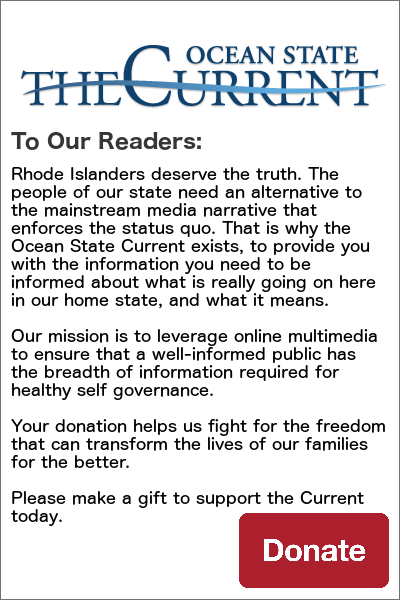The Advantage of the Blue States
Providence Journal columnist Mark Patinkin continues his series of essays learning about the United States by way of his old college buddies with a review of what one of them learned by biking across the country. The short version: The fly-over states are filled with nice people whom our economy is bypassing, which explains why they were willing to look past Donald Trump, the man, and see him as a challenge to the establishment.
Of more interest, to me, is this bit of parochial chauvinism in the comments to Patinkin’s article, from Douglas Maiko:
people in blue states are much wealthier than midwest red states. It comes down to blue state economic policies and great opportuites to create wealth for one self here in blue land. Red State people tend to be cynical about the american dream, watch too much fox news, obsess with cultural issues. The numbers speak for themselves, move to a Blue state if you want the american dream
Even to the extent that there’s truth to his assessment of economic balance, Maiko’s attitude exhibits the dangerous arrogance seen in successful civilizations whose people believe their condition is permanent. The likelihood is that the coasts are thriving based on a legacy of lucky geography and historical accident.
After all, the East Coast is the oldest region in the country, and both coasts have access to the world’s waterways, which is of decreasing value. The coasts’ living generations, in other words, started from an advantaged place that had nothing to do with “blue state economic policies.” Rather, the natural and cultural advantages of the areas allowed advocates of those economic policies to impose them without people’s feeling it as acutely as they would in regions requiring harder work and more sacrifice.
We should fear that our advantages won’t last if we keep driving out our productive class — those who want to cash in their drive and abilities for income, forcing established players to compete. The crisis point may take time, or it might come all at once, when some fly-over city comes up with the next big thing that makes our legacy institutions and industries unnecessary.
Perhaps they’ll maintain the generosity that Patinkin’s friend observed in their roadside diners even when the coasts become dependent on the fly-overs. Counting on that probably wouldn’t be a wise plan, however.


